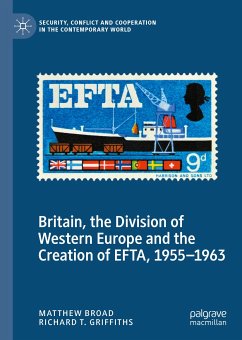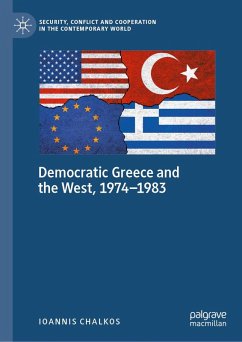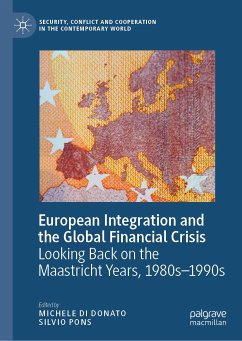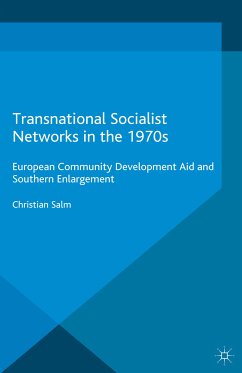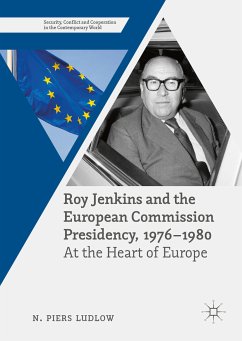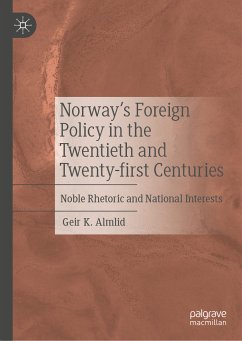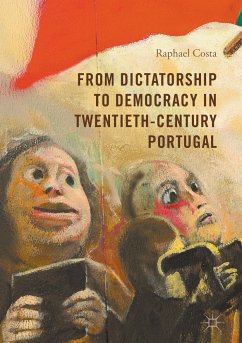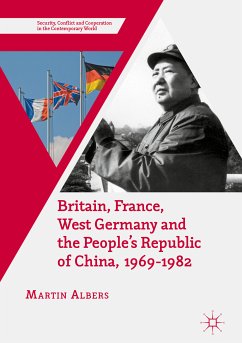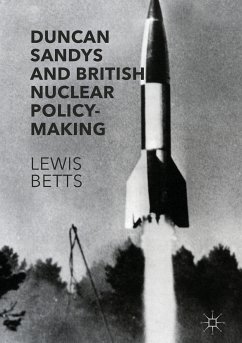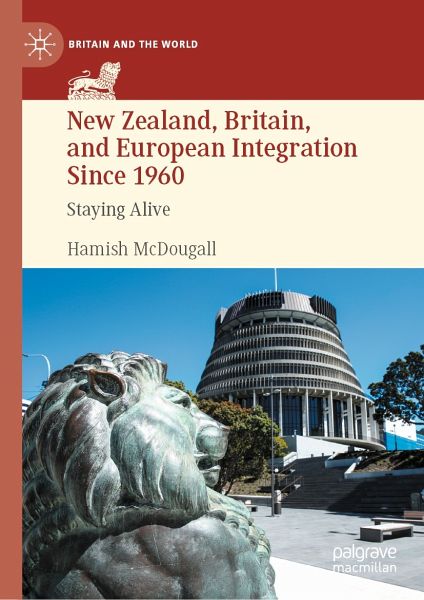
New Zealand, Britain, and European Integration Since 1960 (eBook, PDF)
Staying Alive
Versandkostenfrei!
Sofort per Download lieferbar
88,95 €
inkl. MwSt.
Weitere Ausgaben:

PAYBACK Punkte
44 °P sammeln!
This book explores how New Zealand, a small country almost as far from Western Europe as it is possible to be, assumed political importance in Britain's accession to the European Community vastly out of proportion to its size, proximity and strategic position. At several points in accession negotiations, the issue of New Zealand's continued trade with Britain threatened to derail UK Government attempts to join the Community. This issue also interacted with the broader context of the Cold War, economic shocks and decolonisation, materially affecting the terms of entry into the European Communit...
This book explores how New Zealand, a small country almost as far from Western Europe as it is possible to be, assumed political importance in Britain's accession to the European Community vastly out of proportion to its size, proximity and strategic position. At several points in accession negotiations, the issue of New Zealand's continued trade with Britain threatened to derail UK Government attempts to join the Community. This issue also interacted with the broader context of the Cold War, economic shocks and decolonisation, materially affecting the terms of entry into the European Community, and altering Britain's relations with its European partners and the British public's perceptions of British membership. After entry, New Zealand continued to resurface as a continued source of tension between Britain and an integrating Europe. The role that New Zealand played sheds light on Britain's attempts to retain global influence after the demise of its formal empire. Contributing to a growing body of research which challenges the traditional historical narratives of British 'decline' and colonial 'independence' in the second half of the twentieth century, this book fills an important gap in the historiography of Britain following the 1973 enlargement of the European Communities.
Dieser Download kann aus rechtlichen Gründen nur mit Rechnungsadresse in A, B, BG, CY, CZ, D, DK, EW, E, FIN, F, GR, HR, H, IRL, I, LT, L, LR, M, NL, PL, P, R, S, SLO, SK ausgeliefert werden.



